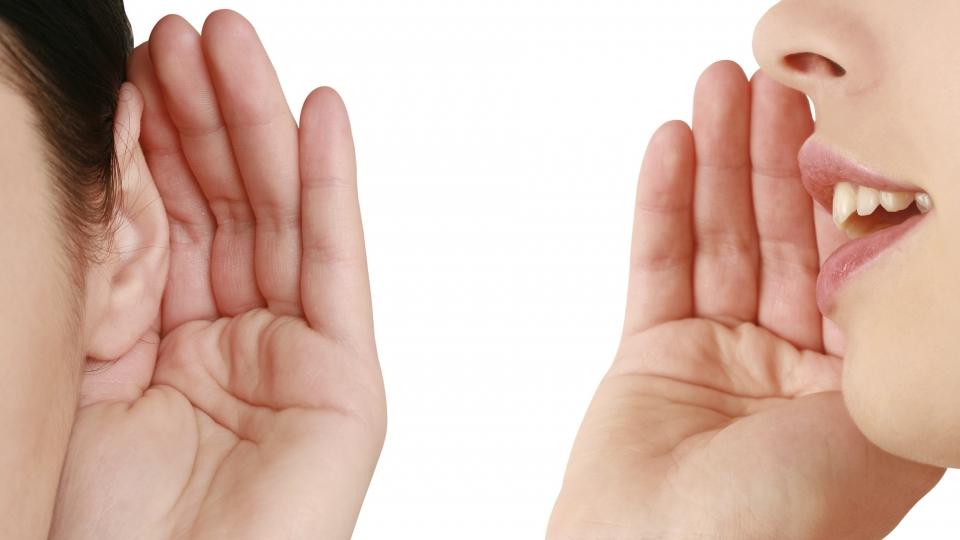
Question: I am 63 years of age and my hearing is steadily deteriorating. Can you help in any way?
B.W., Uganda
Answer: Age-related hearing loss is the most common human auditory disorder, afflicting about 40 percent of those over the age of 75 worldwide.1
But hearing loss is neither necessarily permanent nor inevitable. A number of solvable problems could be causing your loss of hearing, so make sure you check these out first.
1) Clogged ears
If you’re experiencing dizziness or a full feeling in your ears along with your hearing loss, check with your local naturopath or complementary nurse practitioner to see whether you simply need to have earwax removed. But don’t use a cotton swab, because that just pushes the wax further inside; if your ears do need clearing, get it done professionally.
2) Aspirin and NSAIDs
Regularly taking aspirin (say, to reduce the risk of heart attack or stroke) or NSAIDs (like ibuprofen, perhaps to relieve joint pain) can, in many people, interfere with the ability to hear properly; it can even bring on tinnitus – a persistent ringing or buzzing in the ears. If you’re in the habit of taking either type of drug, try going for three weeks without taking any (but check with your doctor first) and see if there’s a change for the better.
Lots of other drugs are also associated with hearing loss,2 so check the possible side-effects of any that you’re taking.
3) Nutritional deficiency
A lack of certain nutrients could be behind your hearing loss, so it’s worth getting your levels of the following checked.
B vitamins. Low levels of vitamin B12 and folate have been linked to age-related hearing loss.3 While this might seem easy enough to correct, studies found that just supplementing with these nutrients didn’t make much difference. Something called ‘gastric hypochlorhydria’ – a decrease in stomach acid production that happens with age in many people – may be the problem. If your stomach isn’t producing enough acid, you can’t properly digest your food – or your nutritional supplements. So, even when taking the right supplements, they can’t do the job they should do.
In fact, around 30 percent of people aged over 60 have atrophic gastritis – chronic inflammation of the stomach lining – with hypochlorhydria inhibiting the release of dietary protein-bound B12, causing a persistent deficiency.4 So it’s worthwhile getting this checked out. If confirmed, the usual treatment (and only under the supervision of a qualified naturopath) consists of swallowing whole, with some water, one betaine HCl with pepsin tablet (try Solgar’s) before your main meal each day. But never use these tablets alongside any anti-inflammatory medication.
Once the stomach-acid problem has been normalized, I’ve found that about one-third of older people with hearing loss gradually improve when they supplement with folic acid and B12. For the other two-thirds, other nutritional deficiencies may be at the root of the problem.
Zinc. A deficiency in this nutrient may be the cause if hearing loss is accompanied by tinnitus, and zinc supplements can often correct this. Zinc has antioxidant and anti-inflammatory effects, which reduce oxidative stress on the cochlea (the spiral structure that transforms vibrations into sound).5 Top tip: Zinc is best absorbed while you sleep, so take it in the late afternoon or evening.
Magnesium. Not having enough of this mineral is also implicated in hearing loss, and supplements have repeatedly been shown to reduce both temporary and permanent hearing loss.6
Vitamin D. A deficiency of this ‘sunshine vitamin’ is reportedly common in ear-nose-throat patients, and supplements may help those not responding to other treatments.7 Alternatively, exposing your skin to sunlight for 15 minutes or so (without sunscreen) every day would give your vitamin D levels a boost. While eating pomegranates and other dietary sources rich in antioxidants, such as green tea and turmeric, can protect against ultraviolet (UV) sun damage,8 make sure you don’t expose your skin long enough to get sunburn.
4) Other possible causes
Vestibular schwannoma (also known as ‘acoustic neuroma’) is a benign, usually slow-growing, tumor that develops in the nerves supplying the inner ear, which controls hearing and balance. The tumor results from an overproduction of Schwann cells, which normally wrap around nerve fibers (like onion skin) to structurally support and insulate the nerves. As the tumor grows, it impinges on the nerves, often causing one-sided hearing loss.9 Surgery may ultimately be required in these cases.
Oxygen for hearing loss
If none of my above suggestions prove fruitful, you could try hyperbaric oxygen therapy, which involves inhaling 100 percent oxygen while lying in a whole-body chamber.
In one study, nearly 60 percent of patients with sudden hearing loss improved after a combination of oxygen therapy and vasodilatation infusion treatment, which delivers pharmacological agents intravenously to increase the amount of oxygen carried in the blood supply. Those who started this combination treatment soon after their hearing loss started achieved the biggest improvements.10
|
References |
|
|
1 |
J Am Geriatr Soc, 1995; 43: 928–35 |
|
2 |
Braz J Otorhinolaryngol, 2006; 72: 836–44; Hear Res, 2009; 252: 29–36 |
|
3 |
Am J Clin Nutr, 1999; 69: 564–71 |
|
4 |
JAMA, 1997; 278: 1659 |
|
5 |
Laryngoscope, 2011; 121: 617–21< /p> |
|
6 |
Ann Otol Rhinol Larygol, 2004; 113: 672–5 |
|
7 |
Indian J Otolaryngol Head Neck Surg, 2013; 65: 57–60 |
|
8 |
http://intelegen.com/nutrients/uv-radiation.htm |
|
9 |
http://american-hearing.org/disorders/acoustic-neuroma/ |
|
10 |
Undersea Hyperb Med, 2011; 38: 137–42 |